High-speed train that will hurtle from Los Angeles to Las Vegas at 186mph gets the green light for $2.5billion funding boost
A proposed high-speed passenger train linking Las Vegas to LA has been given new impetus with the approval of $2.5 billion (£1.975 billion) in additional funding.
The Brightline West rail line aims to transport passengers at speeds of 186 mph or more on electric trains across the Nevada desert in just two hours. Its creation will cost approximately $12 billion.
The latest financing – in tax-exempt bonds – was recently approved by the Biden administration.
It follows an unprecedented $3 billion grant from the U.S. Department of Transportation in December and the government’s permission in 2020 for the company to sell $1 billion in similar bonds.
“We appreciate the trust DOT has placed in us and are ready to get started,” said Brightline founder and chairman Wes Edens.
A proposed high-speed passenger train linking Las Vegas to LA has been given new impetus with the approval of $2.5 billion (£1.975 billion) in additional funding. The Brightline West railroad aims to transport passengers across the Nevada desert in just two hours. Pictured is a Brightline train in Fort Lauderdale
Florida-based Brightline Holdings LLC is the only privately owned passenger rail company in the US. Connecting Miami and Orlando with diesel-powered trains reaching speeds of up to 200 km/h.
And it could also soon become the first in the country to complete a high-speed, electric-powered option if its new Brightline West project is successful.
The 351 km long railway line will halve a four-hour highway journey Vegas and the suburbs of San Bernardino County near LA.
It will make stops in Las Vegas, Victory Valley, Hesperia and Ranch Cucamonga California, where it will connect with the City of Angels Metrolink commuter rail.
Planners and politicians say the project has all required right-of-way and environmental approvals, along with labor agreements, and should ease weekend and end-of-holiday travel traffic congestion often stretching for 16 miles on I-15 near the Nevada-California line.
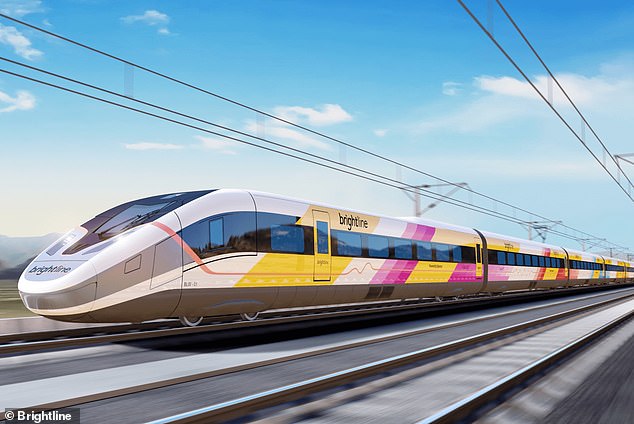
No date has yet been announced for the start of work, but officials have said it could be operational by the start of the 2028 Summer Olympics in Los Angeles.
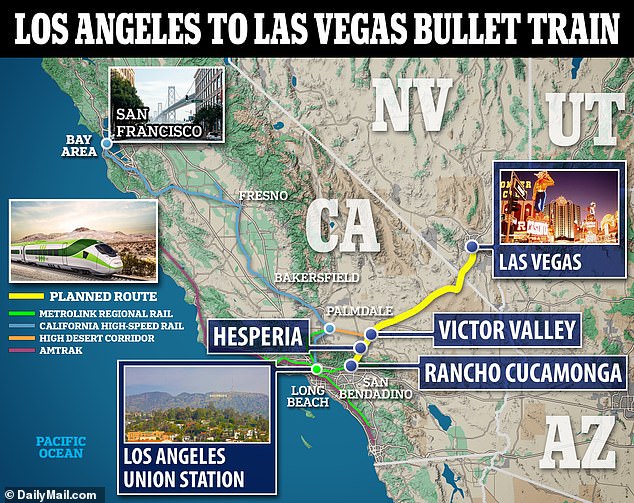
The new planned route is the brainchild of Wes Edens, the billionaire who co-owns both the Bucks and Aston Villa FC
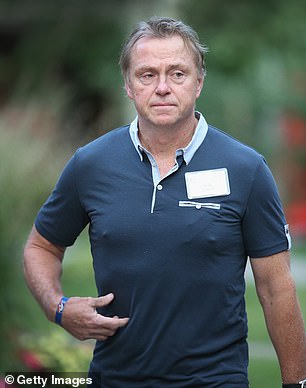
Brightline founder and chairman Wes Edens
U.S. Sen. Jacky Rosen of Nevada, a Democrat who has supported the project in Congress, said she expects the long-sought rail link will boost Nevada’s tourism economy, create thousands of jobs while reducing traffic and pollution Reduce.
No date has yet been announced for the start of work, but officials have said it could be operational by the start of the 2028 Summer Olympics in Los Angeles.
The new planned route is the brainchild of Wes Edens, the billionaire who co-owns both the Bucks and Aston Villa FC.
He helped found Brightline in 2012 to make his vision a reality, and now thanks officials for their trust.
The $3 billion grant in December will be funded by the bipartisan infrastructure bill that, when passed in 2021, was billed as “a once-in-a-generation investment in our nation’s infrastructure and competitiveness.”
The taxpayer-funded guidelines are intended to funnel money to America’s roads, bridges and rails, while expanding access to things like clean drinking water and high-speed internet.
Funds will also go into research to address the climate crisis, as well as advancing environmental justice and communities that feel left behind.
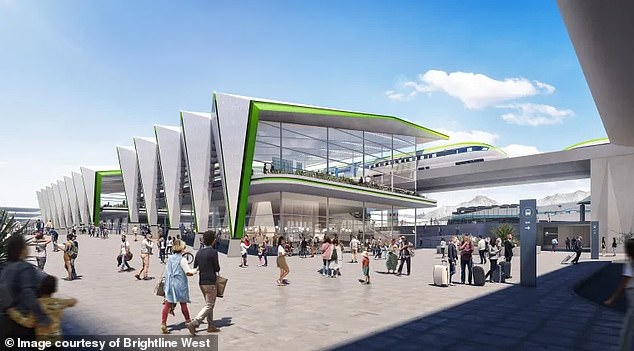
Planners and politicians say the project should help ease weekend and late-holiday traffic congestion, which often stretches for 16 miles on I-15 near the Nevada-California line.
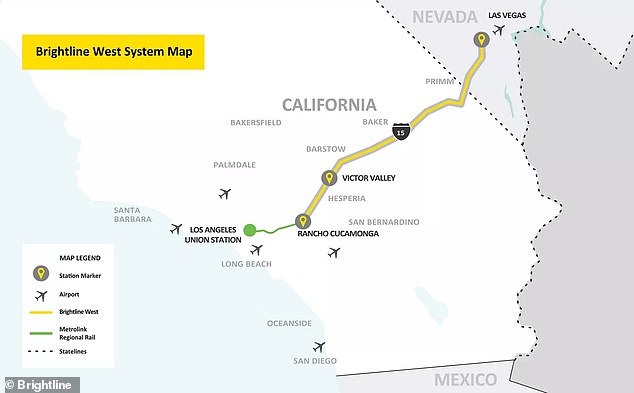
At full operation, Edens and Brightline expect to sell 12 million one-way tickets each year
Lawmakers and politicians in both California and Nevada, particularly Nevada, have argued that they meet the criteria, arguing that a two-hour train ride would be welcome news for the millions of Americans who travel from Southern California to Vegas every year.
The lion’s share, statistics show, comes from the City of Angels – with about 50 million one-way trips between the city and Las Vegas each year, usually by car or bus.
At full operation, Edens and Brightline expect to sell 12 million one-way tickets each year.
Last year, Edens, who previously worked as a partner at the now-defunct Lehman Brothers and also runs Manhattan-based Fortress Investments, said the demand is there and it’s time for the U.S. to catch up with other first-world countries.
“Vegas-to-LA is probably the best system in the world that hasn’t been built yet,” he told Forbes in an interview, noting the current lack of a bullet train in the US.
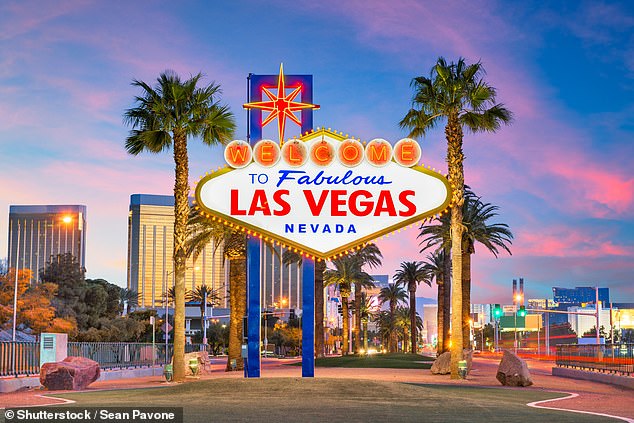
“Vegas-to-LA is probably the best system in the world that hasn’t been built yet,” Edens said
“If you look at the systems in Japan, at the systems in China, nine major cities in Japan are connected to real high-speed lines.”
The billionaire businessman went on to address the struggle currently being felt by state officials in California, who have tried for years — without success — to complete work on a separate bullet train that would connect LA to San Francisco.
That project has been marred by setbacks for 15 years and has already cost taxpayers a staggering $108 billion.
“China has 42,000 kilometers of high-speed rail routes. We have zero,” Edens said.
By comparison, the businessman promised it would only cost him around $12 billion to complete the 350-kilometre route, all in a fraction of the time – even after the Covid-19 pandemic canceled his plans for a future for passenger transport for three years.
